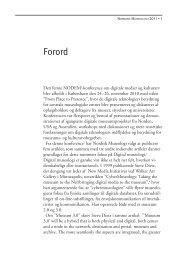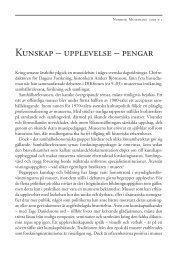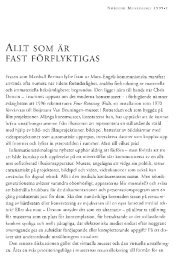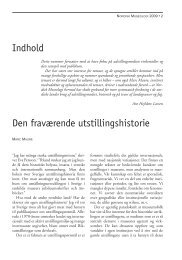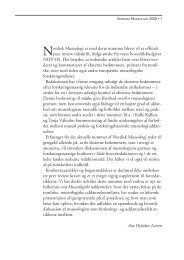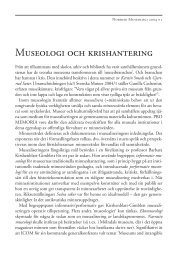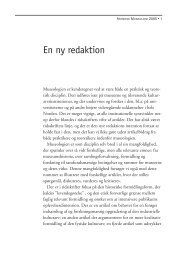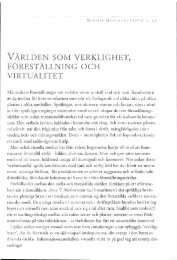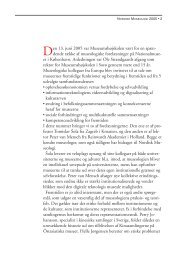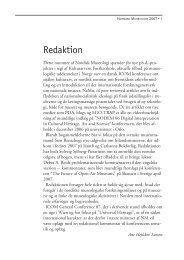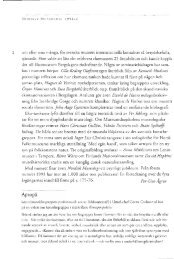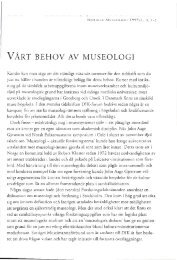ANMÄLAN - Nordisk Museologi
ANMÄLAN - Nordisk Museologi
ANMÄLAN - Nordisk Museologi
You also want an ePaper? Increase the reach of your titles
YUMPU automatically turns print PDFs into web optimized ePapers that Google loves.
SUMMARY<br />
Museums and Cultural Heritage<br />
The literal and original meaning of the term muscology<br />
- science of museums - was connected with the<br />
practices of the big museums in the continent of<br />
Europe. The term was used to cover the different methods<br />
applied in museum work. In recent years the<br />
concept has been expanded as a result of the continues<br />
debate going on within ICOM (The International<br />
Council of Museums). Muscology, it is argued, should<br />
study how, in different cultures and societies, people<br />
select and treat their material heritage, the movableproperty<br />
as well the physical environment, and what<br />
type of institutions and structures are established to<br />
manage the preservation, care and communication of<br />
the historical heritage. Such a definition of muscology<br />
is easy to accept and adopt in Scandinavia, where historically<br />
thete has been a close connection between the<br />
State Board of Antiquities responsible for the care ol<br />
monuments and sites, on the one hand and the public<br />
museums on the other. Then the paper states that the<br />
relationship between material and non-material culture,<br />
which are both present in public discourse, constantly<br />
presents tensions - the one being static and permanent,<br />
the other dynamic and transient. In muscology<br />
the study of the muscological process, wherein the<br />
cultural heritage of a society is created through the<br />
interaction of the non-material and the material elements<br />
of culture, is of central concern. The second<br />
basic concept is the museological object - how it is<br />
selected and defined in different societies over time.<br />
Muscology has three main theoretical perspectives - a<br />
historical one which describes and explains the cultu-<br />
ral heritage in different places and times, a sociological<br />
one which studies the behaviour, activities and institutions<br />
which the idea of cultural heritage has produced,<br />
and a communicative one which studies the way in<br />
which the heritage has been passed on in different<br />
societies. Finally the paper exemplifies the type of rese<br />
arch which should be carried out by museologisrs in<br />
the fields of theory of documentation, preservation<br />
MUSEOI.OGl OCH KULTURARV<br />
and communication. The necessity for an interdisciplinary<br />
basis for museoiogy is stressed throughout the<br />
paper.<br />
Per-Uno Ågren är högskolelektor och prefekt vid institutionen<br />
for museologi, Umeå universitet. Arbetade åren<br />
1953-83 vid Västerbottens museum, Umeå (Adr.<br />
Institutionen för museologi, Umeä Universitet, S-901 87<br />
Umeå).<br />
65



